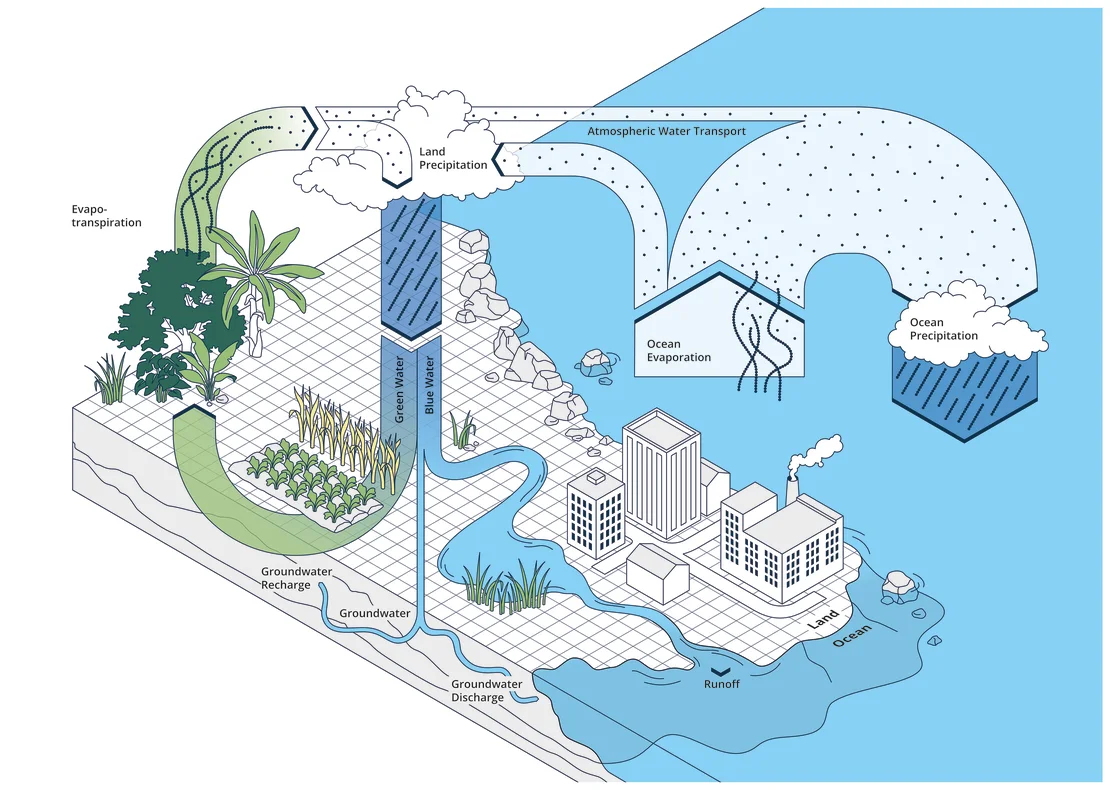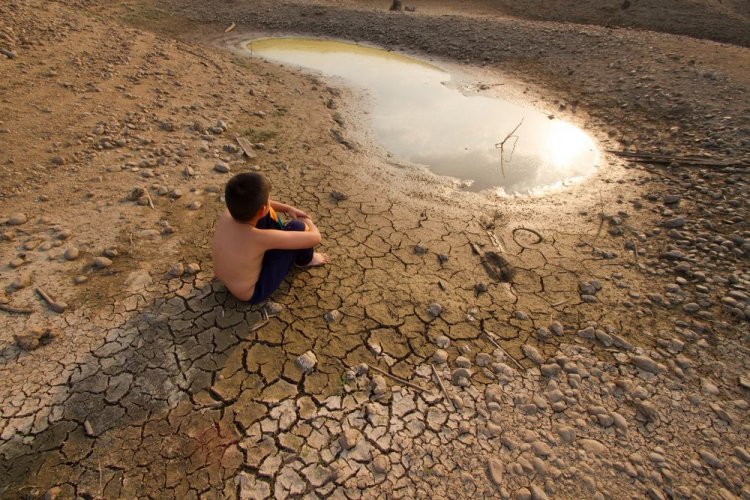Decades of destructive land use and irrational use of water resources combined with the anthropogenic climate crisis have disrupted the global water cycle for the first time in human history.
Such conclusions were made by the Global Commission on Water Economy in its report "Water Economy".
The authors of the study say that water disaster is increasing and can wreak havoc on the economy, food production and people's lives.
Analysts report the following figures:
- almost 3 billion people already face water shortages;
- the water crisis threatens more than 50% of global food production;
- reduction in GDP of countries by 2050 may reach 8% on average, and in low-income countries the losses may be much greater – up to 15%;
- on average, people need at least 4,000 liters of water per day to lead a "decent life", and 50-100 liters to meet basic needs; this is more than many regions will be able to provide from local sources.
"For the first time in human history, we have thrown the global water cycle out of balance. Precipitation as the source of all fresh water can no longer be relied upon," said Johan Rockström, co-chair of the Global Commission on Water Economics and author of the report.
The authors of the report distinguish two types of water:
- "blue water" is liquid water of lakes, rivers and aquifers;
- "green water" is moisture stored in soils and plants.
Movement of "green water" and "blue water" in the global water cycle

Source: Global Commission on Water Economics.
While the supply of "green water" has long been overlooked, it is just as important to the water cycle, the report says. Plants constantly emit water vapor, which returns to the atmosphere and forms about half of all precipitation that falls on land.
The researchers emphasized that the disruption of the water cycle is closely related to climate change.
Plants can store the carbon that warms the planet, but they are very dependent on a steady supply of "green water." Humans are destroying wetlands and forests, depleting these carbon sinks and accelerating global warming. Heat from climate change is drying out landscapes, reducing moisture and increasing the risk of wildfires.
Richard Allan, a professor of climatology at the British University of Reading, is convinced that the crisis can only be overcome by better management of natural resources and a massive reduction in the pollution that warms the planet.
The authors of the report insist that the governments of the countries of the world should recognize the water cycle as a "common good" and solve it collectively. They recalled that countries depend on each other not only through lakes and rivers that cross borders, but also through water in the atmosphere, which can be transported over vast distances. This means that decisions made in one country can disrupt rainfall in another.
The researchers called for a fundamental review of the role of water in the economy to prevent waste and the tendency to grow aquatic crops and build facilities such as data centers in water-scarce regions.
"The global water crisis is a tragedy, but it is also an opportunity to transform the water economy," said Ngozi Okonjo-Iweala, director-general of the World Trade Organization and co-chair of the panel that published the report.
At the beginning of September, EcoPolitic reported that Ukraine implemented the new European directive on water monitoring. We also indicated list of the dirtiest and cleanest rivers Lviv region.





